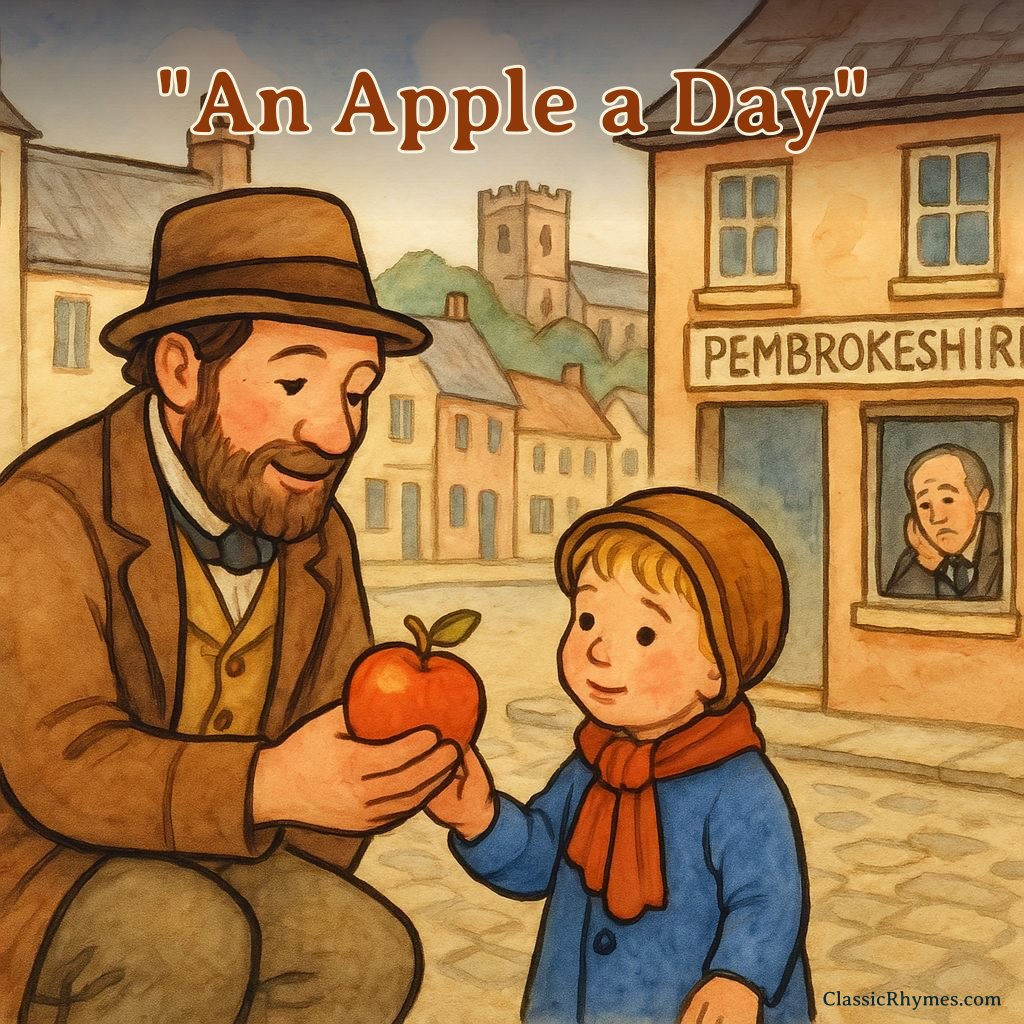The rhyme “An Apple a Day” is a playful and catchy verse that highlights the health benefits of eating apples regularly. Here we explore the origins, meaning, and cultural significance of this classic nursery rhyme, making it a great addition to discussions on traditional children’s literature.
An Apple a Day 🍎
An apple a day keeps the doctor away.
Apple in the morning – doctor’s warning.
Roast apple at night – starves the doctor outright.
Eat an apple going to bed – knock the doctor on the head.
Three each day, seven days a week – ruddy apple, ruddy cheek.
Print or Save This Rhyme
Download PDFRecitals
Listen as female American:
Listen as male American:
Listen as told in a story:
What is the meaning of the ‘An Apple a Day’ Nursery Rhyme?
This rhyme conveys the popular health proverb that eating apples regularly contributes to good health and helps prevent illness. It encapsulates the idea of natural preventive care and encourages children to adopt healthy eating habits using a memorable and rhythmic form.
History and Origin of the Rhyme
The rhyme is traced back to 19th-century British folk tradition, with variations found in Welsh and Devonshire dialects. Its earliest recorded use is from a Pembrokeshire proverb printed in 1860, with a slightly different wording:
“Eat an apple on going to bed, And you’ll keep the doctor from earning his bread.”
It became widely known in the Victorian era and was integrated into nursery rhyme collections emphasizing wholesome living.
Time Period
The rhyme was popularized in the late 19th century and remains well-known today, passed down through generations as a health-related proverb and children’s rhyme.
Historical or Cultural Notes
Reflects Victorian public health ideals where fruit like apples symbolized wholesome nutrition; the rhyme blends vernacular wisdom and educational aims within children’s culture.
Why It Became Popular
Its easy-to-remember melody, practical message, and focus on a common, accessible fruit helped it resonate deeply within English-speaking cultures, reinforcing healthy lifestyle advice through song.
Notable Variants
Some versions have slight wording alterations but retain the message linking apples to health benefits.
Structure, Style, and Themes
Structure and Style
- Meter: Simple, rhythmic for singing and memorization
- Rhyme Scheme: Predominantly couplets (AABB)
- Line Count: Five lines in common versions
- Style Notes: Didactic, proverb-based, melodic
Themes
- Health and nutrition
- Preventive care and natural remedies
- Good habits and daily routine
Language Notes
“Ruddy apple, ruddy cheek” means that eating apples regularly will give you a healthy, reddish glow to your cheeks, symbolizing good health and vitality. In the context of the nursery rhyme, a “ruddy apple” refers to an apple with a red or rosy skin, and the phrase draws a link between the color and appearance of the apple and the natural, lively color of a person’s face who eats them.
Moral or Lesson
Encourages the consumption of nutritious foods like apples to maintain health and avoid sickness, promoting preventative care.

